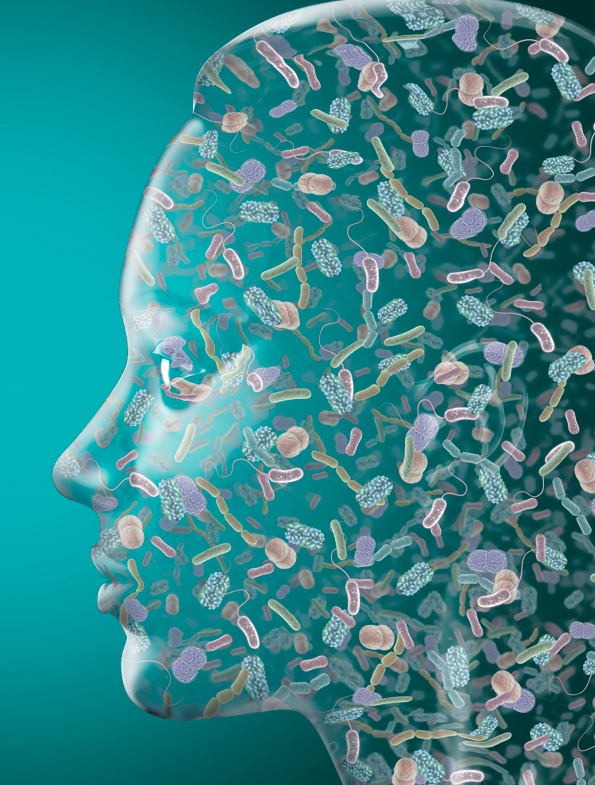
The community of bacteria and their genetic material also known as the human microbiome has been estimated to 100 trillion in the human gut alone. Gut microbiota contribute to a normal, healthy state of homeostasis in the human organism. The human body provides habitat and nutrition for the microbiota which in return provide beneficial effects on the person’s immune, gastrointestinal, endocrine, and neurological systems. Some of the vital functions of microbiota include food processing, digestion of complex indigestible polysacharides, synthesis of vitamins, and inhibition of pathogens.
The bidirectional communication between the gut and the brain takes place along the brain gut microbiota axis, which includes the central nervous system, neuroendocrine, and neuroimmune systems, the sympathetic and parasympathetic arms of the autonomic nervous system, and the enteric nervous system and microbiota.
Microbiota also affect circulating levels of pro- and anti-inflammatory cytokines, which directly impact the brain. Cytokines are involved in the body’s response to stress, which also affects the microbiome. Dysregulation in this system is associated with depression and anxiety.
The microbiome is a dynamic system that is not only affected by stress but also by genetics, diet, metabolism, age, geography, and antibiotic treatment. The Western diet high in fat and refined sugar is a major contributor to gut dysbiosis. Diets rich in complex carbohydrates are associated with fewer pathogenic bacterial species than are high fat/protein diets. Complex carbohydrates also increase beneficial bacterial species. Dietary fiber increases short-chain fatty acid production by microbes that prevent the growth of potentially pathogenic bacteria. Refined sugars, on the other hand, mediate the overgrowth of opportunistic bacteria.
Probiotic supplementation may soon play a role in treating mental illness and microbiota modulating strategies may become a novel therapeutic tool in the treatment of CNS disorders. Bacteria that are capable of delivering neuroactive substances are referred to as psychobiotics or a novel class of psychotropic. It is becoming increasingly clear that psychiatrists need to pay attention to their patients’ diets and the effect it has on their mental states.
